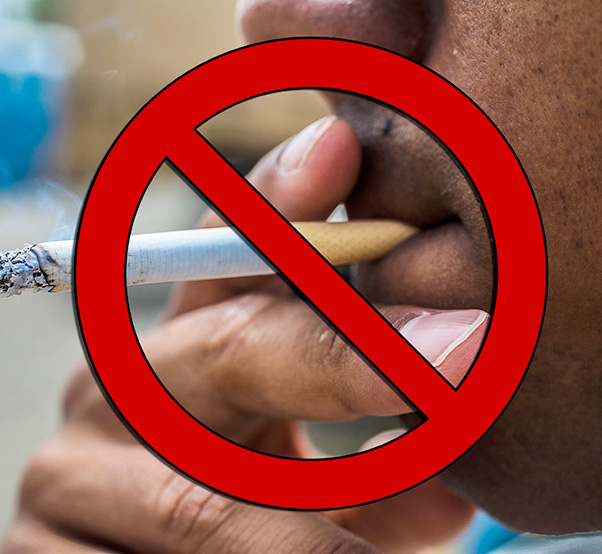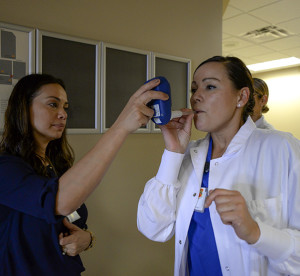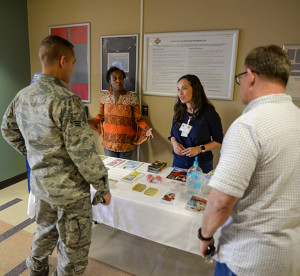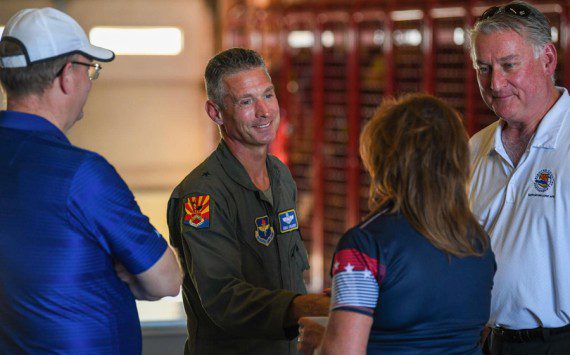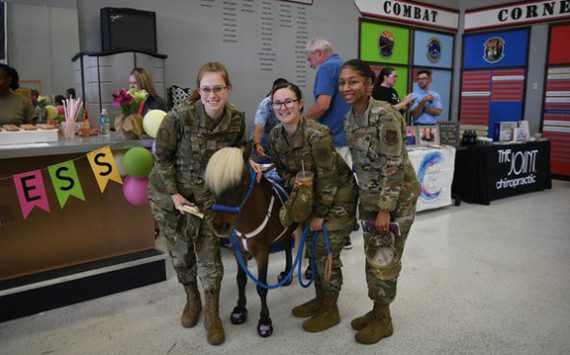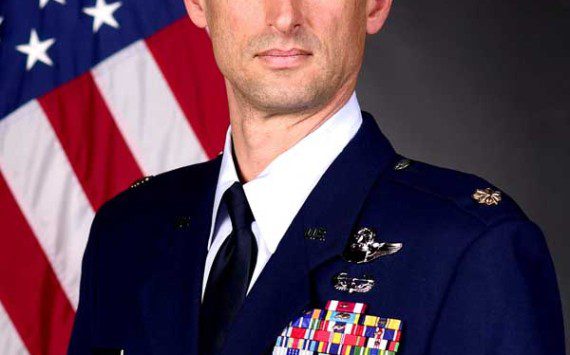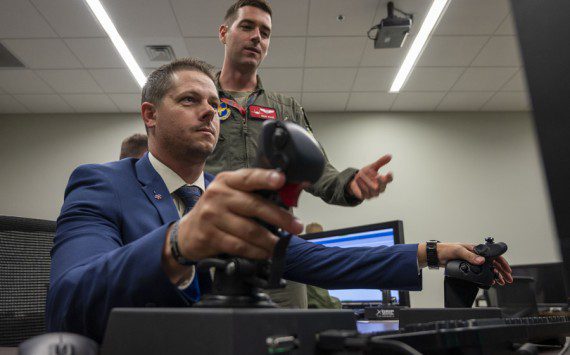Yyolany Caffrey, 56th Medical Group Health Promotions coordinator, performs a carbon monoxide test on Airman 1st Class Amanda Giovannoni, 56th Medical Group dental assistant, at Luke Air Force Base, Ariz., Nov. 17, 2017. The test was used to compare lung function of non-smokers versus smokers.
Every year, on the third Thursday of November, smokers across the nation take part in the American Cancer Society Great American Smokeout.
The event encourages smokers to use the date to quit smoking or begin making a plan to quit.
Thunderbolts at Luke Air Force Base, Ariz., took the entire month of November to spread tobacco awareness and celebrate GASO. The 56th Medical Group Health Promotions and Comprehensive Airman Fitness flight members visited units with high tobacco rates and took the opportunity to speak with Airmen about their options to quit tobacco.
“By quitting, even for one day, smokers are taking an important step toward a healthier life and reducing their cancer risk,” said Yyolany Caffrey, 56th MDG Health Promotions coordinator. “This event is significant for Luke, because it provides the opportunity for Airmen to be more resilient by adopting healthier behaviors.”
Caffrey is a certified tobacco cessation counselor and is able to assist service members in developing a plan to quit tobacco by providing them tools such as nicotine replacement therapy, gum, patches or other medications.
“We all know an Airmen who uses tobacco, and we all know that tobacco is bad,” Caffrey said. “Being informed is the best way to help you, or someone you know, quit.”
Caffrey explained quitting tobacco can benefit an Airman in a multitude of ways.
“Statistics show an Airman who smokes is about 1 minute, 8 seconds slower running a 1.5 mile for the Physical Training test,” said Caffrey. “One minute can be the difference between passing and failing — the difference between a satisfactory and excellent score.”
In addition to improving PT test times, Airmen who quit the use of tobacco can expect to breathe easier, lower their risk of heart and lung disease, improve reproductive fertility, increase energy levels and have a better physical appearance, Caffrey said.
Decora Butler, 56th Medical Group environmental health technician, and Yyolany Caffrey, 56th Medical Group Health Promotions coordinator, answer questions and hand out educational materials about the Great American Smokeout at Luke Air Force Base, Ariz., Nov. 17, 2017. GASO takes place every year on the third Thursday of Novemeber and encourages smokers to quit, or begin to make a plan to quit, using tobacco products.
More than 50 percent of smokers want to quit or have tried to quit in the past, Caffrey said. The GASO event provides the push tobacco user needs to quit tobacco for life.
“As an Air Education and Training Command base, we want to lead by example and have the lowest tobacco rates,” Caffrey said. “In the past, we’ve always promoted tobacco cessation, but now we are being more aggressive about it. We have extended the ways in which members can quit.”
In the first quarter of 2017, Caffrey coordinated with the 56th Civil Engineer Squadron and offered walk-in hours for tobacco cessation counseling, resulting in a two percent decrease in tobacco rates.
“Leaders who want to help their Airmen quit can invite tobacco cessation counselors to speak during commander calls for more information,” said Caffrey. “We also brief new Airmen at the First Term Airmen Center, as well as work closely with first sergeants with onsite tobacco cessation walk-in hours.”
Airmen seeking help with quitting tobacco can make an appointment with their primary care physician, visit the 56th MDG behavioral health optimization clinic or visit Caffrey herself.
For more information, Airmen can call 623-856-7531 or visit www.ucanquit2.org.






